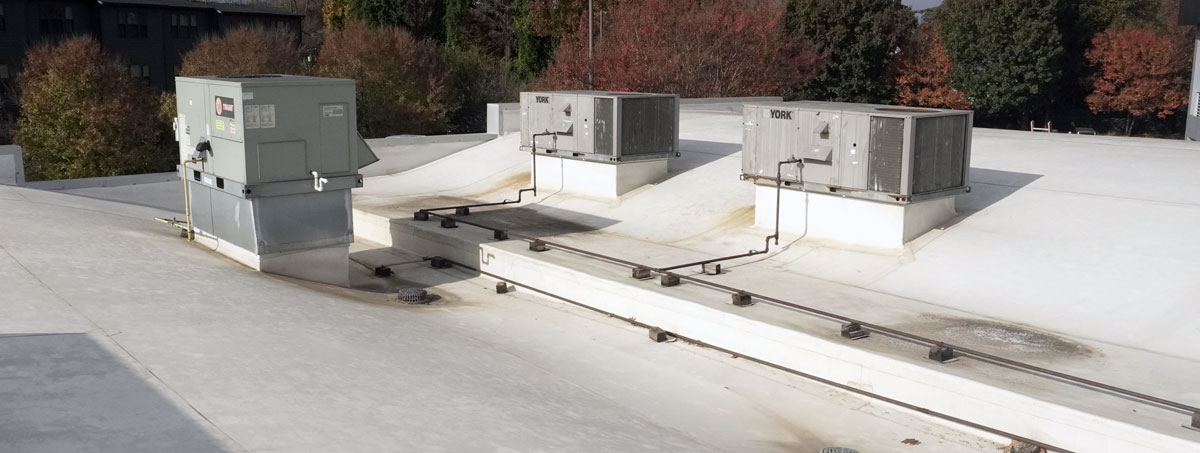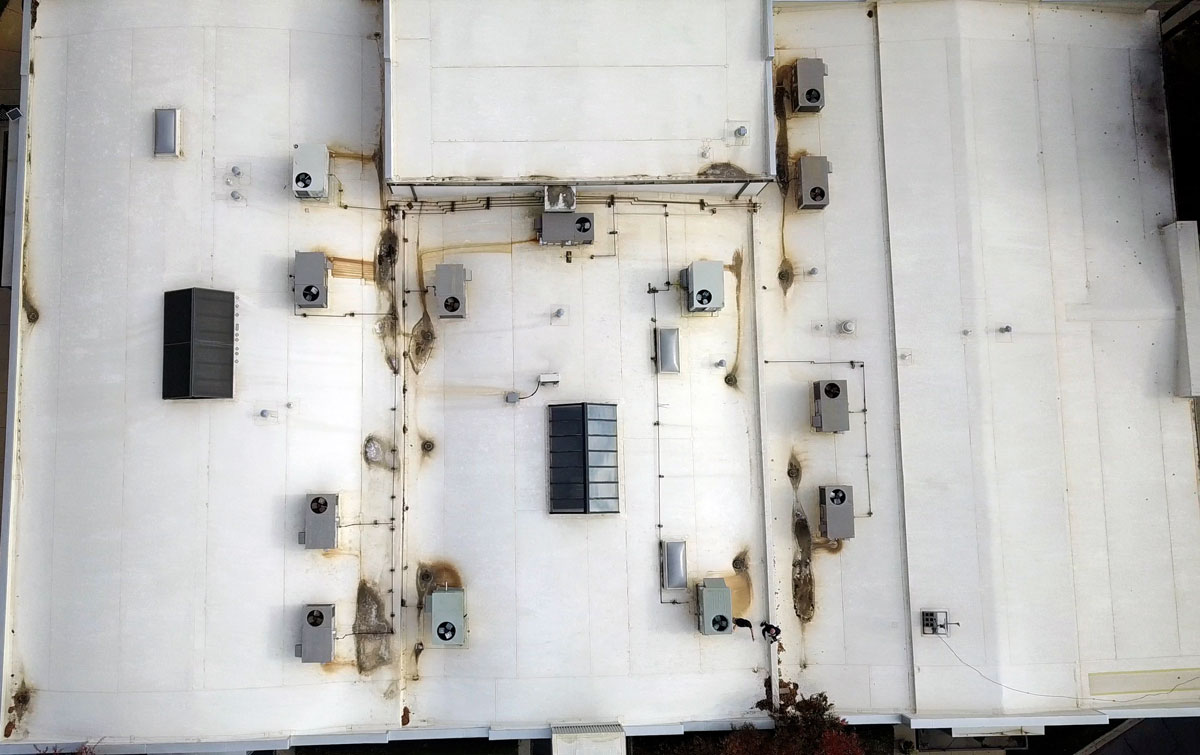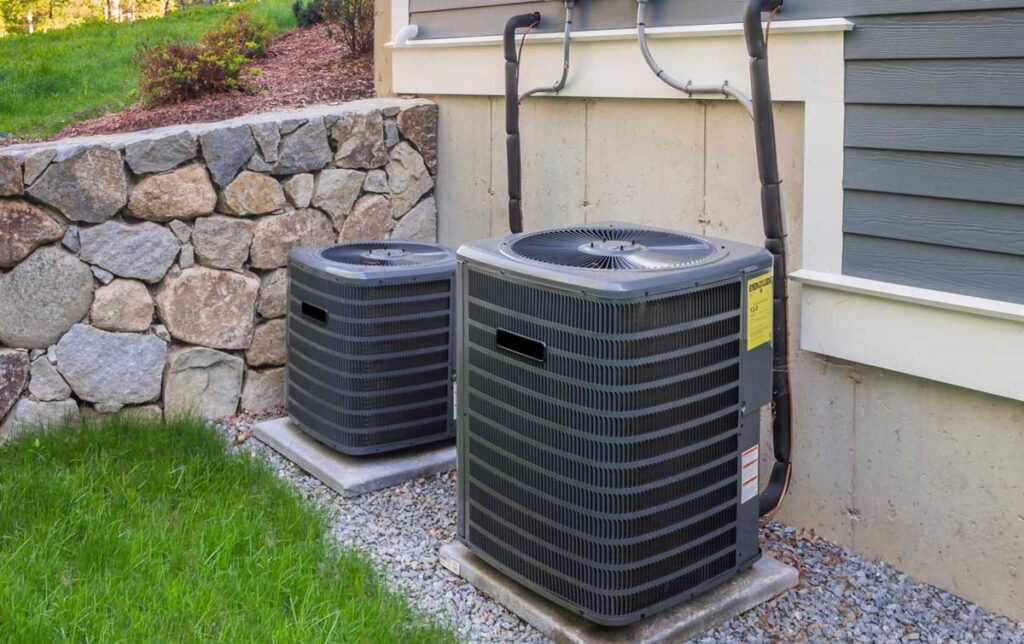
HVAC units are a crucial part of every building structure, whether residential or commercial. They help create a comfortable environment by regulating temperature and air quality. However, it’s important to understand that not all HVAC units are created equal. Commercial HVAC rooftop units and residential HVAC units differ in several ways, including design, cooling and heating capabilities, maintenance requirements, and cost-efficiency.
One of the most noticeable distinctions between commercial and residential HVAC units lies in their design. Commercial HVAC systems are typically larger and modular due to the vast areas they service. These units are often placed on rooftops, a strategic location that saves space and reduces noise pollution within the building (source).
On the other hand, residential HVAC systems are standalone units, usually installed next to the house or in the backyard. Their size is more precise, focusing on cost-efficiency rather than large coverage (source).


The load support difference between commercial and residential HVAC units is significant. Commercial systems are designed to heat or cool larger areas and handle more intense usage, contributing to their larger size (source).
Residential units, however, are designed to maintain comfort in smaller spaces. They usually only need one HVAC unit to effectively manage the climate of the entire home (source).
Commercial HVAC units require regular professional maintenance due to their complex design and heavy-duty function. Their modular design allows for easier upgrading and expansion, but also demands more frequent check-ups.
Residential HVAC units, while requiring regular maintenance, are generally less complex. Homeowners can perform basic upkeep tasks themselves, such as changing filters or cleaning outdoor units, though professional servicing is still recommended for optimal performance.
In terms of cost, commercial units tend to be more expensive due to their larger size and increased capabilities. However, the overall cost can vary greatly depending on specific needs and usage.
Choosing between a commercial HVAC rooftop unit and a residential HVAC unit depends largely on your specific needs. If you’re a business with a large space to heat or cool, a commercial unit is likely the best fit. However, for homeowners or small businesses, a residential unit may be more cost-effective and suitable for your needs.
Remember, whether you choose a commercial or residential HVAC unit, regular maintenance is key to ensure its longevity and efficient performance.
© 2024 Sprague Designs, LLC | All Rights Reserved

